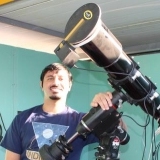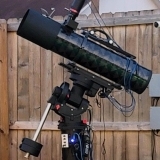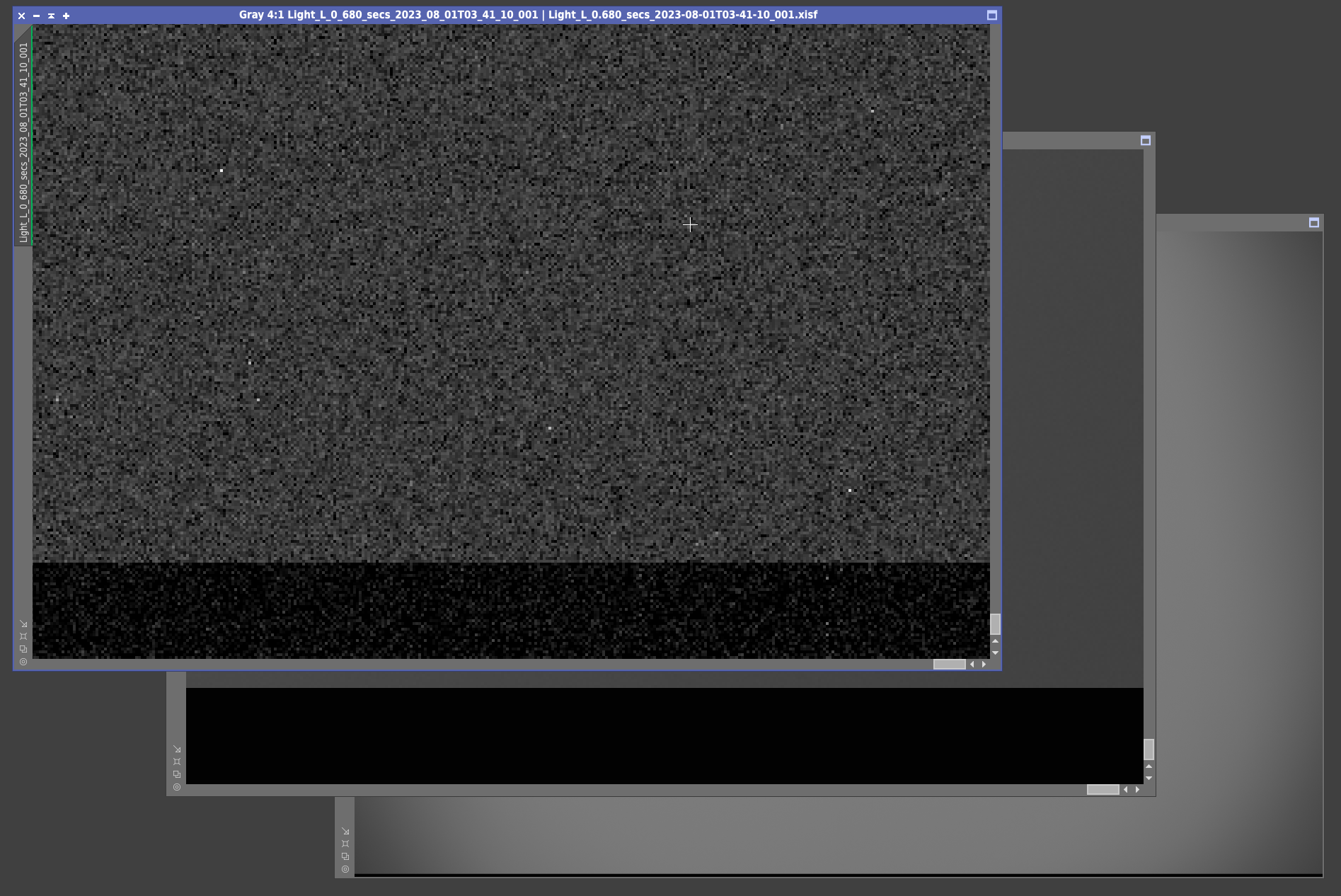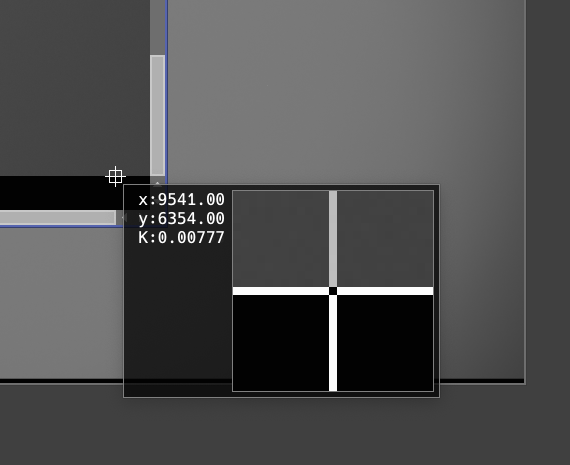×
INDI Library v2.0.7 is Released (01 Apr 2024)
Bi-monthly release with minor bug fixes and improvements
QHY-600 problems with SDK 23.7.16, propably overscan area
QHY-600 problems with SDK 23.7.16, propably overscan area was created by Norman
Hello,
since I switched to libqhy SDK 23.7.16 I see the following problem in my images:
Its not related to readmode or compression or file format.
It also does not appear in SDK 22.7.23.
The affected pixel rows are 6355 to 6388 (starting from 1) and span exactly 34 pixel rows. so I suspect its a problem with handling the overscan area which is 34 pixel rows wide.
Strange thing is, the pixels are "dimmed" and not zero.
Has anyone else seen this problem yet?
Many thanks, Norman
since I switched to libqhy SDK 23.7.16 I see the following problem in my images:
Its not related to readmode or compression or file format.
It also does not appear in SDK 22.7.23.
The affected pixel rows are 6355 to 6388 (starting from 1) and span exactly 34 pixel rows. so I suspect its a problem with handling the overscan area which is 34 pixel rows wide.
Strange thing is, the pixels are "dimmed" and not zero.
Has anyone else seen this problem yet?
Many thanks, Norman
Attachments:
Please Log in or Create an account to join the conversation.
Replied by Norman on topic QHY-600 problems with SDK 23.7.16, propably overscan area
I just want to add that these black pixel rows are not the overscan area.
Its part of the regular image area within the standard 9576 x 6388 resolution.
Its part of the regular image area within the standard 9576 x 6388 resolution.
8 months 2 weeks ago
#94713
Please Log in or Create an account to join the conversation.
- Jasem Mutlaq
-

- Online
- Administrator
-

Replied by Jasem Mutlaq on topic QHY-600 problems with SDK 23.7.16, propably overscan area
I think it's best to send this information to QHY directly. We can only update SDK but we can't make any changes or fixes to it, it has to be done by QHY.
8 months 2 weeks ago
#94725
Please Log in or Create an account to join the conversation.
Replied by Norman on topic QHY-600 problems with SDK 23.7.16, propably overscan area
Hi Jasem,
I am already in contact with Baader and they talked to QHY.
Can you tell me the version of the source code you built the SDK 23.7.16 with?
I remember the version number 23.7.16 comes from your build date and is not related to QHY.
So we have kind of a reference they can work with.
Many thanks, Norman
I am already in contact with Baader and they talked to QHY.
Can you tell me the version of the source code you built the SDK 23.7.16 with?
I remember the version number 23.7.16 comes from your build date and is not related to QHY.
So we have kind of a reference they can work with.
Many thanks, Norman
8 months 2 weeks ago
#94739
Please Log in or Create an account to join the conversation.
Replied by Norman on topic QHY-600 problems with SDK 23.7.16, propably overscan area
This is getting strange,
I built all SDK version back to v23.02.18 and see the same problem everytime.
Everything earlier than this commit-ID will not build against indilib-203 without errors:
commit 37e72a8c586a0e154b40f064e98c8b0231667e65
Author: Jasem Mutlaq <This email address is being protected from spambots. You need JavaScript enabled to view it.>
Date: Sat Feb 18 21:40:33 2023 +0300
QHY SDK v23.02.18
I first need to find the matching indilib commit to match the 3rd-party commit above to be able to build a reference where this problem above presumably does not appear. I only checked against my old astroberry repo with SDK 22.7.23 so far.
Until I can't proove that 22.7.23 build from source doesn't show this overscan problem I cannot exclude possible other reasons.
Its also hard to believe that noone else seems to have this problem reported for over a year.
So I guess theres someting else going on.
But clear sky tonight after a long time, so its imaging time now
I built all SDK version back to v23.02.18 and see the same problem everytime.
Everything earlier than this commit-ID will not build against indilib-203 without errors:
commit 37e72a8c586a0e154b40f064e98c8b0231667e65
Author: Jasem Mutlaq <This email address is being protected from spambots. You need JavaScript enabled to view it.>
Date: Sat Feb 18 21:40:33 2023 +0300
QHY SDK v23.02.18
I first need to find the matching indilib commit to match the 3rd-party commit above to be able to build a reference where this problem above presumably does not appear. I only checked against my old astroberry repo with SDK 22.7.23 so far.
Until I can't proove that 22.7.23 build from source doesn't show this overscan problem I cannot exclude possible other reasons.
Its also hard to believe that noone else seems to have this problem reported for over a year.
So I guess theres someting else going on.
But clear sky tonight after a long time, so its imaging time now
8 months 2 weeks ago
#94743
Please Log in or Create an account to join the conversation.
- Jasem Mutlaq
-

- Online
- Administrator
-

Replied by Jasem Mutlaq on topic QHY-600 problems with SDK 23.7.16, propably overscan area
INDI QHY SDK is built directly from master, not a released version. So the released SDK is indeed the snapshot of the SDK source at at day.
8 months 2 weeks ago
#94764
Please Log in or Create an account to join the conversation.
Replied by Norman on topic QHY-600 problems with SDK 23.7.16, propably overscan area
Hi!
I nailed this further down a bit after a few hours testing.
For all my tests I kept the indilib and indi_qhy_ccd driver at these current git versions:
indi-qhy version origin/master:
commit 84b47a8d1b2766c9015ff54cb2404ce60ea14693
Author: Jasem Mutlaq <This email address is being protected from spambots. You need JavaScript enabled to view it.>
Date: Tue Jul 18 12:34:07 2023 +0300
indilib version origin/master:
commit f90db4e8cf87e3d990cb2b85900eeaab2e3fc428
Author: Jasem Mutlaq <This email address is being protected from spambots. You need JavaScript enabled to view it.>
Date: Thu Aug 31 12:33:16 2023 +0300
I only had to relink indi_qhy_ccd for the different major version numbers 20, 21, 22,23 of libqhy.
This was the only change in the test environment while I iterated through the libqhy-SDK versions.
The firmware image in the QHY600 camera was always on 23.7.16 for all my tests.
I can pretty much say that the problem described was not introduced by the camera firmware but by the SDK Libraries.
On the client side I had kstars-3.6.6 with indilib-2.0.3. I tested also XISF versus FITS compessed and uncompressed without any differences.
This is the latest error free SDK Version I have tested:
libqhy 22.11.9 git commit id: 995dd8bb21ee719ab85faed38e1dc1817c5d4d62 from Wed Nov 9 17:54:08 2022 +0300
The next version with libqhy 23.02.18 and git commit id: 37e72a8c586a0e154b40f064e98c8b0231667e65 from Sat Feb 18 21:40:33 2023 +0300
introduced the problem with the darkened pixel rows as described above.
As from my understanding and what Jasem told, the directory indi-3rdparty/libqhy contains only data from QHY and its not touched during linking the libraries.
But I don't know if this is enough to approach QHY now with this problem.
It could also be that QHY introduced changes between SDK 22.11.9 and 23.02.18 which must be reflected in driver code.
But I dont have access to release-notes or similar information.
If thats not the case I would say its on QHYs part now to analyze this deeper.
Any opinions are very welcome.
Best regards, Norman
I nailed this further down a bit after a few hours testing.
For all my tests I kept the indilib and indi_qhy_ccd driver at these current git versions:
indi-qhy version origin/master:
commit 84b47a8d1b2766c9015ff54cb2404ce60ea14693
Author: Jasem Mutlaq <This email address is being protected from spambots. You need JavaScript enabled to view it.>
Date: Tue Jul 18 12:34:07 2023 +0300
indilib version origin/master:
commit f90db4e8cf87e3d990cb2b85900eeaab2e3fc428
Author: Jasem Mutlaq <This email address is being protected from spambots. You need JavaScript enabled to view it.>
Date: Thu Aug 31 12:33:16 2023 +0300
I only had to relink indi_qhy_ccd for the different major version numbers 20, 21, 22,23 of libqhy.
This was the only change in the test environment while I iterated through the libqhy-SDK versions.
The firmware image in the QHY600 camera was always on 23.7.16 for all my tests.
I can pretty much say that the problem described was not introduced by the camera firmware but by the SDK Libraries.
On the client side I had kstars-3.6.6 with indilib-2.0.3. I tested also XISF versus FITS compessed and uncompressed without any differences.
This is the latest error free SDK Version I have tested:
libqhy 22.11.9 git commit id: 995dd8bb21ee719ab85faed38e1dc1817c5d4d62 from Wed Nov 9 17:54:08 2022 +0300
The next version with libqhy 23.02.18 and git commit id: 37e72a8c586a0e154b40f064e98c8b0231667e65 from Sat Feb 18 21:40:33 2023 +0300
introduced the problem with the darkened pixel rows as described above.
As from my understanding and what Jasem told, the directory indi-3rdparty/libqhy contains only data from QHY and its not touched during linking the libraries.
But I don't know if this is enough to approach QHY now with this problem.
It could also be that QHY introduced changes between SDK 22.11.9 and 23.02.18 which must be reflected in driver code.
But I dont have access to release-notes or similar information.
If thats not the case I would say its on QHYs part now to analyze this deeper.
Any opinions are very welcome.
Best regards, Norman
The following user(s) said Thank You: Jasem Mutlaq
Please Log in or Create an account to join the conversation.
- Sonny Cavazos
-

- Offline
- Elite Member
-

- Posts: 239
- Thank you received: 38
Replied by Sonny Cavazos on topic QHY-600 problems with SDK 23.7.16, propably overscan area
I have seen this in my system as well. I traced it down to a USB3 issue where I was running an ASI guide camera.
I moved the ASI from the USB3 bus to the USB2.0 bus and the issue went away.
At least on my system.
I moved the ASI from the USB3 bus to the USB2.0 bus and the issue went away.
At least on my system.
The following user(s) said Thank You: Norman
7 months 3 weeks ago
#95453
Please Log in or Create an account to join the conversation.
Replied by Norman on topic QHY-600 problems with SDK 23.7.16, propably overscan area
Thanks for the feedback!
Thats a very good point. I will do some more tests with different bandwidth settings and different USB ports.
Best regards, Norman
Thats a very good point. I will do some more tests with different bandwidth settings and different USB ports.
Best regards, Norman
7 months 3 weeks ago
#95455
Please Log in or Create an account to join the conversation.
Time to create page: 3.939 seconds
© 2003-2022 by INDI Library. All rights reserved.


